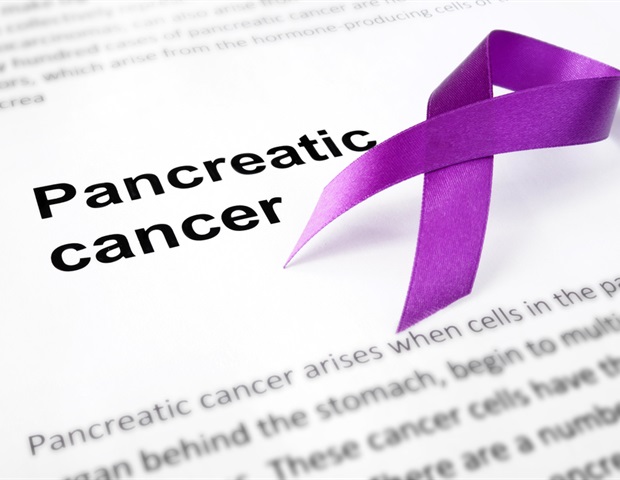A drug screening system that fashions cancers utilizing lab-grown tissues known as organoids has helped uncover a promising goal for future pancreatic most cancers therapies, in accordance with a brand new examine from researchers at Weill Cornell Medication.
Within the examine, revealed Dec. 26 in Cell Stem Cell, the scientists examined greater than 6,000 compounds on their pancreatic tumor organoids, which comprise a typical pancreatic cancer-driving mutation. They recognized one compound-;an current coronary heart drug known as perhexiline maleate-;that powerfully suppresses the organoids’ development.
The researchers found that the cancer-driving mutation within the organoids forces the abnormally excessive manufacturing of ldl cholesterol, which the drug largely reverses.
Our findings establish hyperactive ldl cholesterol synthesis as a vulnerability which may be targetable in most pancreatic cancers.”
Dr. Todd Evans, examine co-senior creator, vice chair for analysis in surgical procedure, the Peter I. Pressman MD Professor in Surgical procedure, and a member of the Hartman Institute for Therapeutic Organ Regeneration at Weill Cornell Medication
“This examine additionally highlights the worth of utilizing genetically well-defined organoids to mannequin most cancers and uncover new therapy methods,” stated co-senior creator Dr. Shuibing Chen, director of the Heart for Genomic Well being, the Kilts Household Professor Surgical procedure and a member of the Hartman Institute for Therapeutic Organ Regeneration at Weill Cornell Medication.
The opposite co-senior creator was Dr. Fong Cheng Pan, a analysis assistant professor within the division of surgical procedure at Weill Cornell Medication throughout the examine.
The examine’s co-first authors had been postdoctoral researcher Dr. Xiaohua Duan, teacher Dr. Tuo Zhang, and a visiting fellow, Dr. Lingling Feng, all at Weill Cornell Medication throughout the examine.
A tumor organoid-based screening system
Organoids have change into widespread instruments for finding out tissues in well being and illness. They are often comprised of human or animal tissue, they’ll recreate a lot of an organ’s advanced structure, and they are often genetically engineered for precision modeling. Organoids may mannequin particular tumor varieties with their cancer-driving gene mutations. Certainly, when these tumor organoids are derived from human tissue, they’ve the potential to mannequin human cancers higher than any animal mannequin.
Within the examine, the researchers arrange an organoid-based automated drug-screening system for the commonest type of pancreatic most cancers, pancreatic ductal adenocarcinoma (PDAC)-;one of the crucial untreatable and deadly of cancers. The organoids, comprised of regular mouse pancreatic tissue, had been engineered to comprise numerous units of mutations identified to drive human pancreatic tumors. All of the organoids contained KrasG12D, the mouse model of a cancer-driving mutant gene discovered usually of PDAC.
The researchers examined a library of greater than 6,000 compounds, together with FDA-approved medication, on the organoids, figuring out a number of that might considerably disrupt their development. The perfect of those was perhexiline maleate, an older drug used to deal with the guts situation known as angina. A modest dose of the drug blocked development in all of the KrasG12D-containing organoids, destroying a few of them outright inside days, whereas having no opposed affect on wholesome organoids missing the mutation. The drug had related results in opposition to mouse and human PDAC-derived tumor organoids transplanted into mice, and in human tumor organoids carrying different sorts of Kras mutation.
By evaluating gene exercise patterns in handled and untreated organoids, the researchers discovered that cancer-associated mutant Kras drastically boosts the manufacturing of ldl cholesterol in organoid cells, and that perhexiline maleate opposes this impact by inhibiting a key ldl cholesterol metabolic pathway regulatory issue known as SREBP2.
Ldl cholesterol as an rising most cancers goal
The invention of ldl cholesterol’s position was not solely stunning, since ldl cholesterol is an important building-block utilized in making new cells, and a promoter of cell survival; it’s already identified to be an vital sustainer of malignant development for another tumors, together with lung tumors. Now, the outcomes recommend that focusing on it might be an efficient new therapy technique in opposition to PDAC.
Perhexiline maleate’s effectiveness in human organoids harboring a number of totally different Kras mutations additionally means that turbo-charged ldl cholesterol synthesis is usually a normal therapy goal in KRAS-mutant cancers.
“We hope that our cholesterol-targeting technique will likely be impartial of specific KRAS mutations and can make it onerous for handled tumors to evolve resistance,” stated Dr. Evans, who can also be a member of the Sandra and Edward Meyer Most cancers Heart.
Perhexiline maleate is unlikely for use as-is for treating PDAC. Though it’s nonetheless prescribed as an angina drug in Australia and another international locations, it will possibly have critical unwanted effects, together with liver injury and peripheral nerve damage-; which is why it was withdrawn from a number of European markets within the Eighties, and was by no means permitted in america.
“We wish a greater compound for most cancers therapy,” stated Dr. Chen. The simplicity of the drug’s chemical construction means that it in all probability may be modified to enhance its efficiency, security, bloodstream half-life and different properties, she stated.
The staff now plans to make use of perhexiline maleate as a place to begin for the event of a extra refined candidate PDAC drug, and as a laboratory software for finding out ldl cholesterol synthesis in PDAC and different cancers.
Supply:
Journal reference:
Duan, X., et al. (2023) A pancreatic most cancers organoid platform identifies an inhibitor particular to mutant KRAS. Cell Stem Cell. doi.org/10.1016/j.stem.2023.11.011.




















